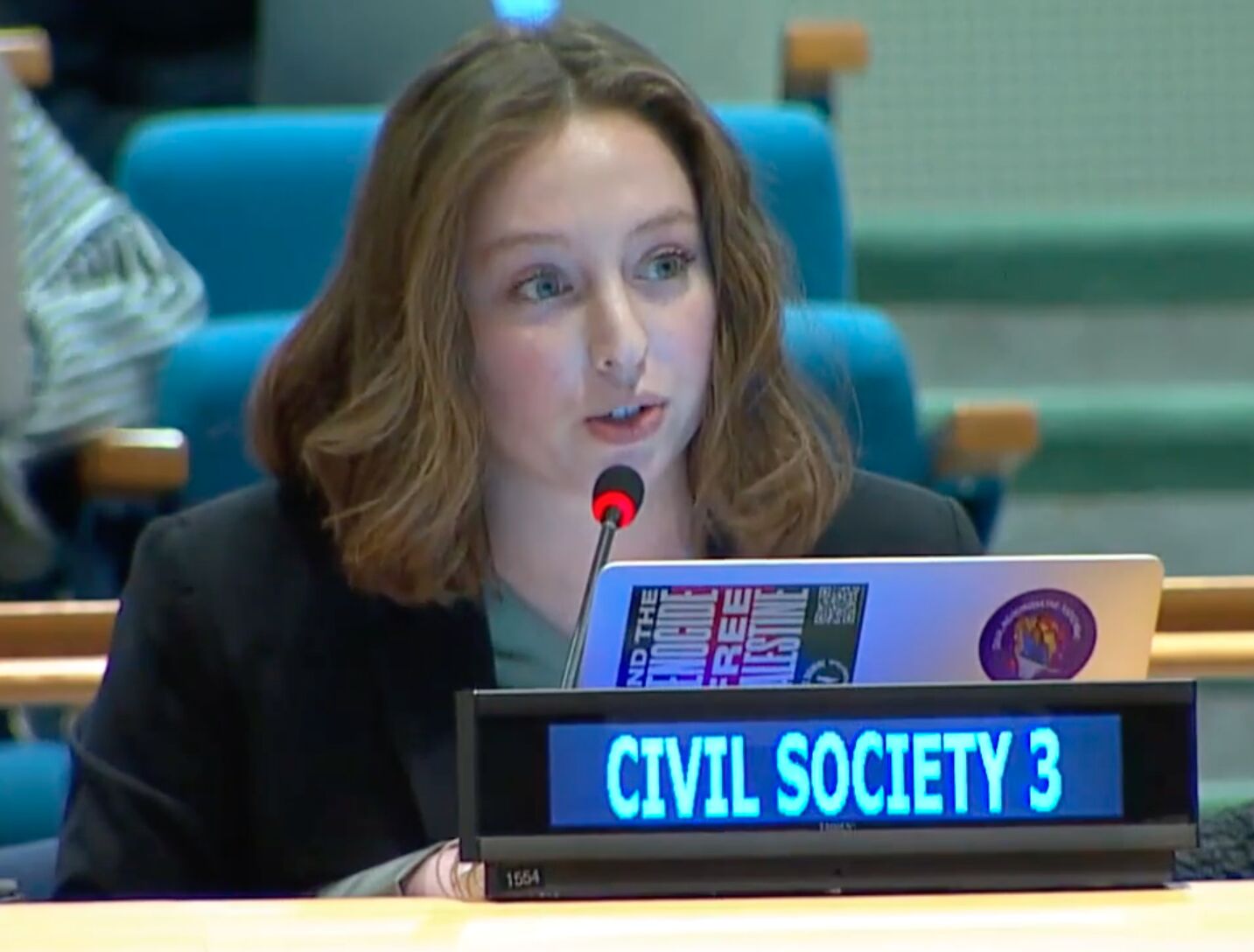“There are attempts by developed countries to use trade on the one hand to unilaterally impose sustainability standards on developing countries, and on the other to ensure their own access to critical minerals in developing countries.” With these words, Erica Levenson, speaking on behalf of Regions Refocus and the Civil Society Financing for Development (FfD) mechanism, addressed Member States at the Fourth Preparatory Committee Session (4th PrepCom) for the Fourth International Conference on Financing for Development (FfD4).
Held at the United Nations Headquarters in New York from 30 April-1 May, 2025, the 4th PrepCom focused on discussing the First Draft of the Outcome Document for FfD4. Regions Refocus was very active in shaping the Trade workstream’s revisions to the First Draft, and used these inputs as the basis of the statement.
The statement voiced the Trade workstream’s urgent concern about the functioning of the multilateral trading system, especially in the context of the narrowing ambition of the FfD4 Outcome Document. The world faces multiple intersecting crises– including economic, political, ecological, and social– and trade has played a significant role in the formation and exacerbation of each of them. It is women and marginalized communities who are most impacted by the current fundamentally unjust trade regime.
WTO rules have failed to prevent the current trade war, yet have for decades prevented developing countries from using tariffs in genuine industrialization strategies. Developing countries’ sheer survival in the global economy has become hinged on the whims of other countries, who are violating all core principles of international trade with no consequences. This highlights two things: first, the need to go beyond the WTO for multilateral trade governance. Second, developing countries must emphasize their own policy space to employ tariffs while addressing the current moment. In closing, the statement pointed to the connection between trade and climate as another key issue of concern. Nationally owned and controlled production, refining, and processing are necessary to ensure critical minerals are used towards domestic value addition and structural transformation rather than to benefit corporations based in the Global North.









